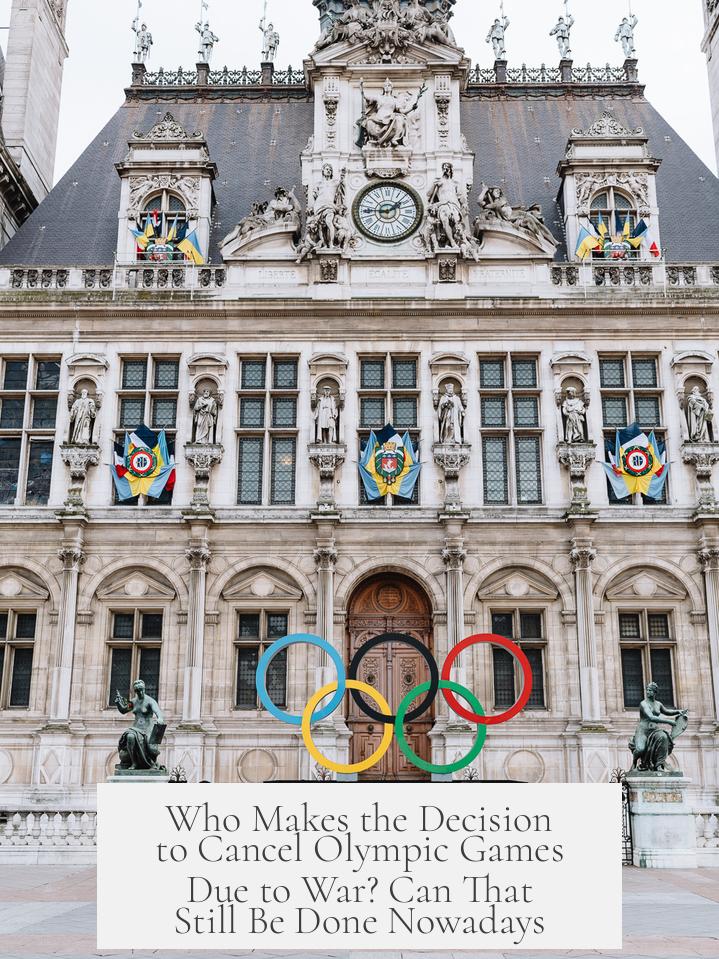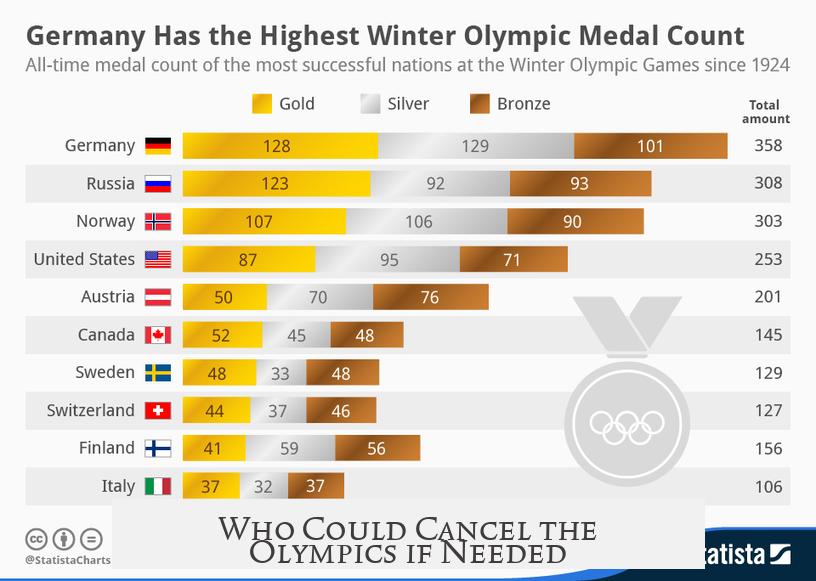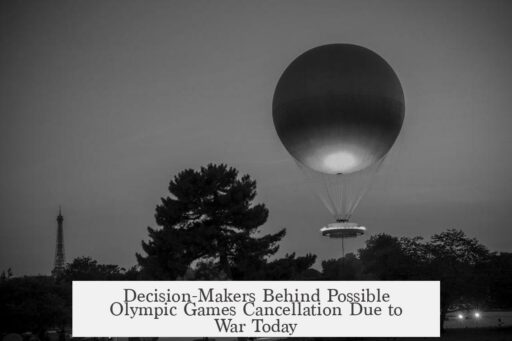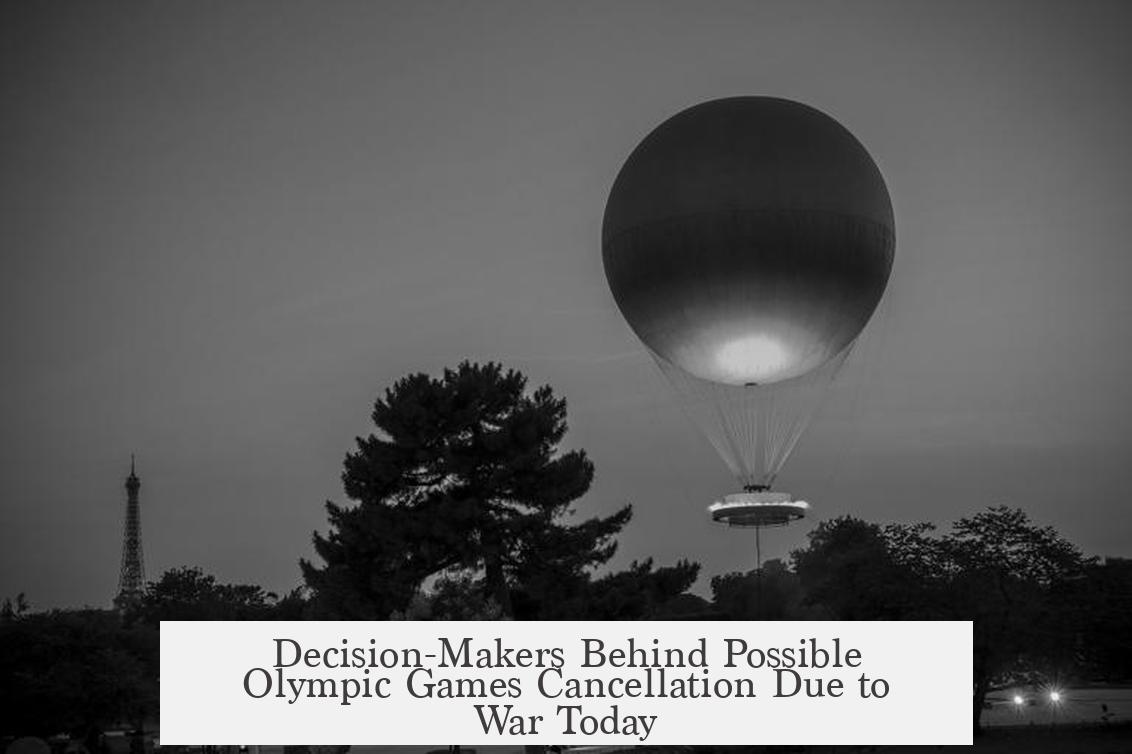The decision to cancel the Olympic Games due to war primarily lies with the International Olympic Committee (IOC). This body holds ultimate authority over the Olympic movement and the staging of the Games. While national governments and host cities play significant roles in organizing the event, the IOC holds the legal and organizational power to postpone or cancel the Olympics in exceptional circumstances, including war.
Historically, the Olympic Games faced cancellations during times of global conflict. The 1916 Summer Olympics, scheduled for Berlin, were canceled due to World War I. Similarly, World War II led to the cancellation of the 1940 and 1944 Games. These decisions highlight the IOC’s authority to halt the Games when circumstances threaten safety and feasibility.
In contemporary times, although no Olympic Games have been canceled due to war since World War II, the possibility remains. The IOC and host countries assess political stability, security, and global conditions to ensure the safety of athletes, officials, and visitors. Modern communication and logistics provide avenues for contingency planning, but if war or geopolitical tensions escalate severely, cancellation or postponement remains within the IOC’s prerogative.
Decision-making involves extensive consultation with governments, international organizations, and security experts. The IOC prioritizes the Olympic values of peace and unity, but safety and practicality are paramount. In recent decades, threats other than war—such as pandemics or political unrest—have prompted postponements, like the Tokyo 2020 Games delayed due to COVID-19.
| Aspect | Details |
|---|---|
| Authority | International Olympic Committee (IOC) |
| Historical Cancellations Due to War | 1916, 1940, 1944 Olympic Games canceled |
| Modern Feasibility of Cancellation | Possible but yet unexercised due to war since WWII |
| Decision Factors | Safety, security, political stability, IOC consultation with governments |
- IOC holds exclusive rights to cancel Olympic Games.
- Past cancellations occurred during world wars in early 20th century.
- Modern cancellations due to war are possible but unexercised so far.
- Decisions involve security assessments and international consultation.
Who Makes the Decision to Cancel Olympic Games Due to War? Can That Still Be Done Nowadays?

Let’s cut straight to the chase: the decision to cancel the Olympic Games due to war ultimately rests with the International Olympic Committee (IOC). However, it’s not as simple as one person waving a magic wand. The process is complex, involving consultations with national Olympic committees, host countries, and international authorities. But here’s the kicker—while the IOC has the final say, cancelations are incredibly rare and politically fraught.
Now, before you start imagining shadows of canceled Olympics past, it’s important to recognize that no official, contemporary record explicitly outlines the exact mechanism or the individual who holds this power. The IOC functions as a collective body, making executive decisions in plenary sessions or extraordinary meetings when crises arise. So, it’s more about group decision-making than a single “Olympics cancel button” champ.
Why Hasn’t Anyone Cancelled the Olympics for War Recently?
Sure, we’ve all heard the rumors or imagined scenarios—a war breaking out, athletes and spectators caught in a geopolitical mess, and the solemn announcement that the Olympics must be shelved. But here’s a surprising fact: there is no recent example where the Olympics were canceled outright due to ongoing war.
Historically, the only times the Olympics faced cancelation or disruption didn’t involve sudden decisions made on the brink of war. Rather, cancellations were tied to **large-scale global conflicts**, such as World War I and World War II. The 1916 Olympics, and then the 1940 and 1944 editions, were canceled well in advance as Europe and the world were engulfed in war.
This tells us two things. First, war can and has halted the Games, but only under extreme, prolonged circumstances. Second, the IOC likely prefers postponement or relocation over outright cancellation when conflict looms, trying to protect the spirit and continuity of the Olympics.
How Does the IOC Handle a Crisis Today?
Today, in a world of 24/7 instant information and complex geopolitics, outright cancelation is the nuclear option. The IOC usually explores all alternatives first, including:
- Postponement: The Tokyo 2020 Olympics gave us a live case study. The Games were postponed for a year due to the COVID-19 pandemic—an unprecedented global health crisis, not war, but illustrating the IOC’s willingness to adapt.
- Relocation: If the war or conflict jeopardizes the host city or country, the IOC might consider moving the event. That option is politically and logistically challenging but not impossible.
- Security Assessments: The IOC, alongside the host nation, security organizations, and international bodies, constantly evaluates risks.
Canceling the Olympics outright due to war today would require consensus that the host cannot guarantee safety or that participation would be politically untenable. So far, this hasn’t happened.
Who Could Cancel the Olympics if Needed?

Though the IOC leads the charge, the host country’s government plays a critical role. The Olympics involve extensive planning, infrastructure investment, and national pride. A war on the host soil would force the government to engage—possibly urging cancelation or relocation. But the IOC remains the arbiter.
Other stakeholders also influence decisions:
- International sports federations: Their athletes participate worldwide. They weigh in on safety and feasibility.
- Sponsors and broadcasters: Financial and reputational stakes matter. They provide pressure to continue or cancel.
- The global community: Public opinion, diplomatic relations, and United Nations stances could sway decisions.
Could War Cancel the Olympics Today? Let’s Ask “What If?”
Imagine a conflict breaking out in the host country a few months before the Games. The IOC faces a tough call:
This scenario sparks debates—do we cancel, postpone, or carry on? The risks to athletes and spectators weigh heavily.
Crucially, cancelation impacts more than just the Games. Host countries suffer massive sunk costs. Athletes lose peak competitive opportunity. Global unity takes a hit.
In our interconnected world, the IOC would likely exhaust all alternatives before canceling. Moving the event is challenging but possible with enough preparation and international support.
Wrapping It Up: Can Cancellation Still Happen?
Yes, technically cancelation of the Olympic Games due to war can still happen but would be an absolute last resort. The IOC has power but prefers flexibility. Historical precedents exist, but only during world wars over a century ago.
Should war erupt in or near a host country, the decision involves complex interactions between the IOC, governments, athletes, sponsors, and global public opinion. Canceling outright is a nuclear option no one wants, given the Olympics’ symbolic role in promoting peace and cooperation.
Wondering what the future holds? The Olympic Games are a mirror to the world’s state. When peace prevails, the flames burn bright. When war threatens, watch the decisions of a global committee balancing sport, safety, and symbolism.
In the meantime, maybe keep an eye on current global hotspots before betting on the next Olympics going full steam ahead!




